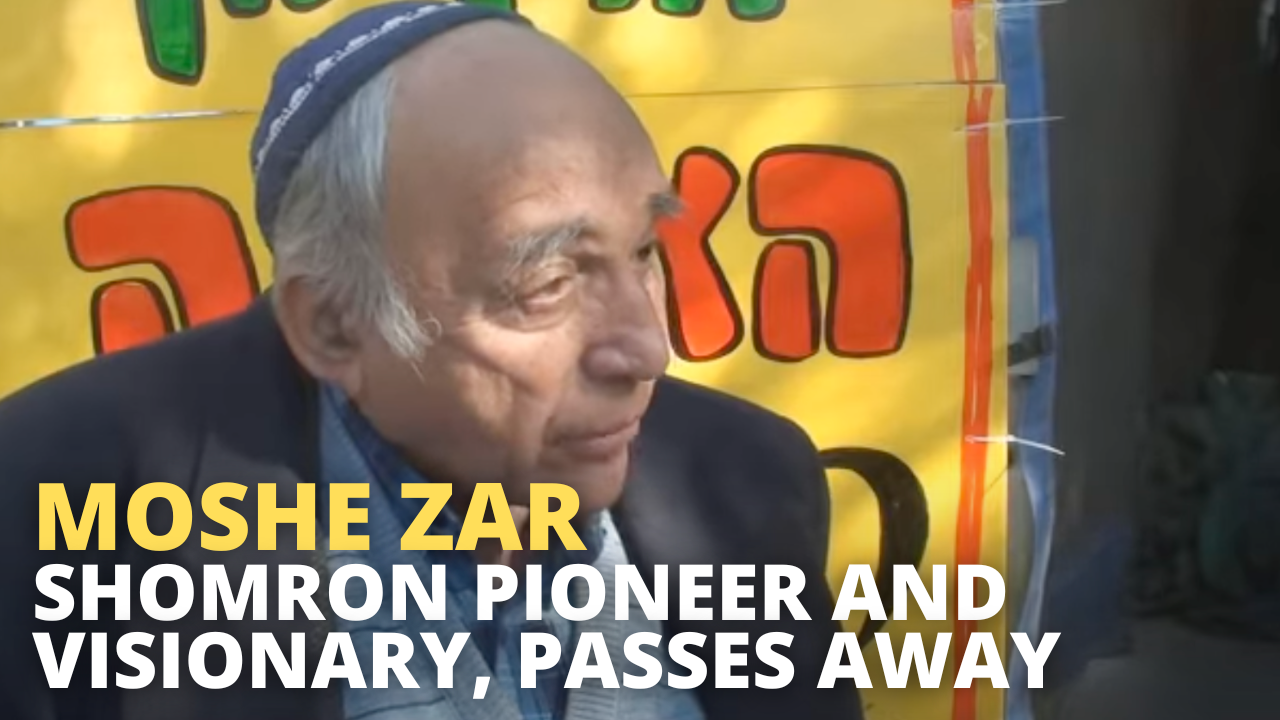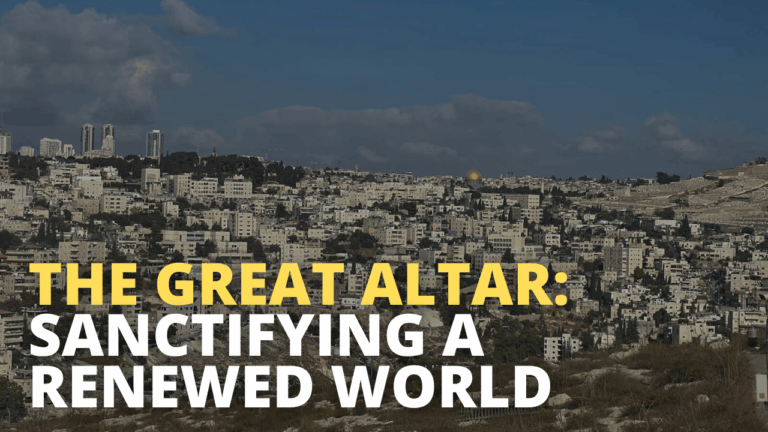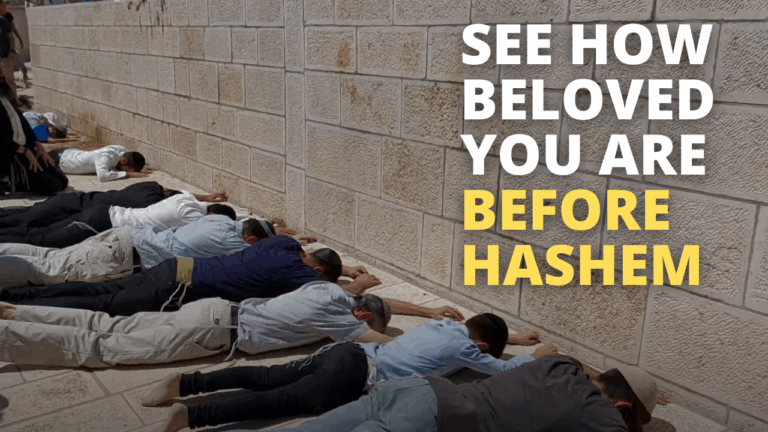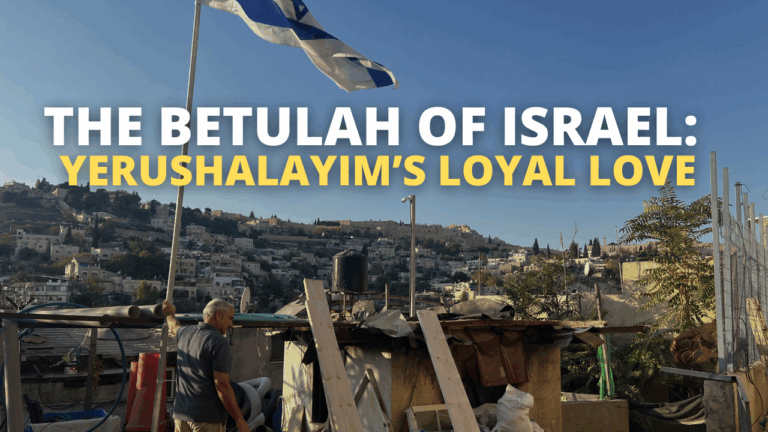Moshe Zar, Shomron Pioneer and Visionary, Passes Away
By: Judith Segaloff
Moshe Zar, a revered figure known as the “Grand Founder of the Shomron” and a tireless pioneer of Judea and Samaria, passed away peacefully. His legacy is etched into the landscape of the Shomron, where his decades-long dedication shaped communities like Ramat Gilad, named in memory of his murdered eldest son, Gilad.
Born and raised in Jerusalem, Zar joined the Bnei Akiva youth movement at age 14. He fought alongside his youth group friends in Sinai, sustaining injuries during the Six Day War. After the conflict, he settled in Kibbutz Beerot Yitzchak, where he met his wife, Yael, a fellow Bnei Akiva member. The couple married, moved to Moshav Nachalim, and raised eight children together.
An electrician by profession, Zar was recruited by Gush Emunim, a precursor to the YESHA – Yehuda and Shomron Council, to clandestinely build power grids for ten future neighborhoods in Judea and Samaria. The project’s completion was marked by the grid’s activation during the “second hakafot” after-party on Simhat Torah in 1979. Captivated by Samaria’s natural beauty, Zar and Yael embraced the call to settle the land, initially living in a caravan in Karnei Shomron with their growing family.
“I had a dream to buy land and to build a big home for my family,” Zar shared in a past interview. “I knew then if you bought land privately, it would be possible to build a house just as Arabs do, without permits and permissions.”
Starting in 1979, Zar spent forty years acquiring vast dunams of property across Samaria, including Havat Gilad, Emanuel, Barkan, Karnei Shomron, and six parcels spanning Ramat Gilad. Using intermediaries and speaking Arabic, he discreetly purchased land from Arab owners, offering five to ten times its value—transactions paid in Jordanian dinars and meticulously documented to protect sellers facing a Sharia law death penalty. “The word got out among the Arabs that there’s a crazy guy willing to pay way over market value,” he recalled. “After a while, I no longer had to look for Arabs willing to sell land.” Known for his honesty, Zar conducted these deals unarmed and earned respect among the Arab community.
In 2014, shortly after Igal Lahav was elected Mayor of Karnei Shomron, a troubling fax arrived, ordering the demolition of six or seven homes in Ramat Gilad due to a land dispute involving Zar, Palestinians, and the Israeli government. The demolition was delayed as the case wound through the justice system. Nine years later, a ruling confirmed the Israeli government’s ownership of the majority of the land, while Zar retained the parcels he had acquired.
Veteran real estate agent D’vora Brand, who worked in the Shomron for over forty years, noted the complexity of land ownership there. “You used to be able to do that when this was the wild, wild West,” she said, explaining the varying legal standings of parcels. Some land is leased from the Israeli government or the World Zionist Organization, while privately purchased land, often acquired through intermediaries due to legal risks, remains unregistered. The Land Redemption Fund, established post-1967, also plays a role with donated, undeveloped land requiring permits for building.
Parts of Ramat Gilad fell under Zar’s private purchases, and he sold rights to others. Some land was transferred to developers now working on zoning and parceling. The Karnei Shomron municipality, stretching from Jinsafut to Emmanuel, holds potential for 10,000 housing units and a connecting road, though development requires Ministry of Defense approval. Zar’s vision was to expand Karnei Shomron—currently home to about 11,000 residents—into a city of 30,000, a dream that began to take shape with the approval of its twin “horns.”
Tragically, Zar endured a terrorist stabbing and the loss of his son Gilad, a security guard killed in a targeted shooting. Despite these hardships, he maintained, “Our war is not with the Arabs. It’s with the Jews who want to remove us from our own land.”
Survived by his wife Yael, eight children, and a sprawling family of 192+ grandchildren and great-grandchildren living across Judea and Samaria enclaves, Moshe Zar’s life was a testament to resilience and vision. You could say he was truly the King of the Hills.
Moshe Zar’s passed away on July 11, 2025, leaving behind a legacy that continues to shape the Shomron. The funeral is scheduled for Sunday, July 13, 2025.



